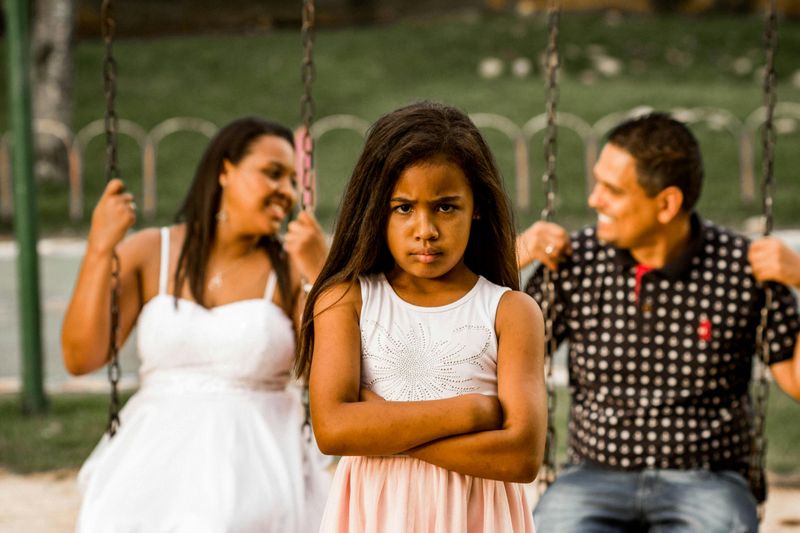11 Ways Parents Accidentally Make Kids Feel Like a Burden

Parenting is filled with love and good intentions, but sometimes our words and actions send messages we never meant to deliver. Even the most caring parents can accidentally make their children feel like they’re a burden rather than a blessing. Understanding these common mistakes can help us build stronger relationships with our kids and ensure they feel valued, wanted, and cherished.
1. Constant Complaining About Responsibilities

Parents who frequently vent about the challenges of child-rearing within earshot of their kids plant seeds of self-doubt in young minds. Children are incredibly perceptive and internalize these comments, wondering if they’re the source of their parents’ exhaustion and frustration.
The casual remark “I never get a moment to myself because of you” might seem like innocent stress relief to an adult, but to a child, it translates to “You are the problem in my life.” Even complaining about routine parenting tasks like making lunches or driving to activities signals that these acts of care are burdensome rather than expressions of love.
Children don’t choose to be born, and hearing that their existence makes life harder for the people they love most can create lasting emotional damage and a sense that they’re fundamentally unwanted.
2. Dismissing Their Needs or Emotions

“Stop crying, it’s not that big a deal” might seem like a way to help kids toughen up, but it actually teaches them their feelings don’t matter. When parents routinely brush off children’s emotions or needs as trivial, kids learn to hide their true feelings and needs.
A child who’s told they’re “too sensitive” or “making a mountain out of a molehill” begins to see their emotional responses as problematic. They start to believe their very natural reactions are somehow wrong or inconvenient for others.
This invalidation is particularly damaging during formative years when children are learning emotional regulation. The impact can follow them into adulthood, where they may struggle to express needs, set boundaries, or believe their feelings deserve attention and respect from others.
3. Overemphasizing Sacrifices

“I gave up my dream job for you” lands like a heavyweight on a child’s shoulders. Parents who regularly highlight what they’ve sacrificed to raise their children unintentionally create a debt that can never be repaid.
Children don’t ask to be born, yet these comments make them feel responsible for their parents’ life choices and disappointments. The message becomes that parenthood is a series of losses rather than gains. Even well-meaning parents might not realize how these statements build a foundation of guilt that can shape a child’s self-worth for decades.
Rather than feeling cherished, children begin to view themselves as obstacles to their parents’ happiness – burdens that have cost their parents the lives they truly wanted to live.
4. Making Help Feel Like a Chore

The heavy sigh before helping with homework speaks volumes louder than any words. Body language and tone communicate our true feelings about assisting our children, even when our words say otherwise.
Kids quickly pick up on the eye-rolling, huffing, or irritated tone that suggests their requests for help are unwelcome interruptions. A parent checking their watch while helping tie shoes or muttering under their breath while explaining math problems sends a clear message: helping you is taxing my patience. These subtle cues teach children that needing assistance is an imposition.
Eventually, many kids stop asking altogether, choosing to struggle alone rather than feel like they’re bothering their parents – a pattern that can persist long into adulthood, affecting relationships and professional development.
5. Comparing Them to Siblings or Other Kids

“Why can’t you be more like your sister?” cuts deeper than parents realize. Comparisons turn family into a competition where some children inevitably feel like they’re losing – and that they’re harder to love because of it.
Children develop at different rates and have unique strengths and challenges. When parents constantly highlight how one child falls short compared to siblings or peers, they create a harmful narrative that some children are easier to parent than others. The compared child begins to see themselves as the difficult one, the disappointment, the burden.
These comparisons don’t motivate improvement – they damage self-esteem and create lasting resentment between siblings. Each child needs to be valued for who they are, not measured against someone else’s yardstick.
6. Using Guilt as a Manipulation Tool

“After all I’ve done for you, this is how you repay me?” This guilt-inducing statement weaponizes parental care, transforming what should be unconditional love into a transactional relationship. Children begin to believe they must earn their parents’ care through perfect behavior and compliance.
When parents regularly use guilt to control behavior, kids learn that love comes with strings attached. The natural mistakes and boundary-testing of childhood become laden with shame. Rather than understanding that parents provide for them because they love them, children begin to feel they’re accumulating a debt they can never fully repay.
This manipulation creates anxiety as children feel they must constantly prove they’re worthy of the resources, time, and love their parents provide – turning the parent-child relationship into an emotional burden.
7. Expecting Emotional Support From the Child

Marriage problems, financial worries, and work stress are adult concerns that children aren’t equipped to handle. Yet many parents unintentionally turn their children into emotional confidants, sharing burdens too heavy for young shoulders.
This role reversal, known as parentification, forces children to prioritize their parents’ emotional needs above their own developing needs. A child who regularly comforts a distressed parent or listens to adult problems learns they must be the strong one, the supporter, the rock. They become hyper-attuned to parental moods, walking on eggshells to avoid triggering distress.
While children should learn empathy, they shouldn’t feel responsible for their parents’ happiness or emotional stability. This inappropriate emotional dependence robs children of the security that comes from having parents who seem capable of handling life’s challenges.
8. Reacting Harshly to Normal Mistakes

Spilled milk becomes a federal case when parents overreact to ordinary childhood mishaps. Dramatic sighs, angry outbursts, or excessive punishment for normal developmental errors teaches children they’re walking disappointments. Learning requires mistakes – lots of them.
When parents respond with frustration to spilled drinks, forgotten homework, or broken dishes, children internalize shame rather than learning from the experience. They begin to see themselves as clumsy, forgetful, or incompetent rather than as normal kids developing skills through trial and error.
Children raised with disproportionate reactions to mistakes often become perfectionists or develop anxiety about trying new things. They fear making errors because they’ve learned that mistakes aren’t just learning opportunities – they’re evidence they’re burdensome to the people they love most.
9. Not Making Time for Connection

“Not now” becomes a painful refrain when it’s the constant response to a child’s bid for attention. Parents juggle countless responsibilities, but consistently prioritizing everything else over quality time sends a devastating message: you’re not important enough.
The parent scrolling through social media while their child excitedly shows them a drawing, or repeatedly postponing promised activities, communicates that connecting with their child is low on their priority list. Children don’t need elaborate outings or constant entertainment, but they do need regular, undivided attention to feel valued.
When work emails, household chores, or screen time consistently take precedence over connection, children begin to feel like unwelcome interruptions in their parents’ busy lives rather than central figures deserving of time and attention.
10. Treating Children as Interruptions

The phrase “Daddy’s working” stings when it becomes the automatic response to a child seeking connection. Constantly shooing children away with “Not now” or “I’m busy” teaches them their presence is an intrusion rather than welcome.
Children who hear these dismissals repeatedly begin to internalize the message that they’re bothering their parents simply by existing in the same space. While parents certainly need boundaries and can’t be available 24/7, the frequency and tone of these interactions matter tremendously. The child sent away ten times in a row without a warm interaction begins to feel like a nuisance.
Even brief moments of genuine connection between necessary separations can reassure children they’re valued members of the family, not inconvenient disruptions to be managed and minimized.
11. Making Their Interests Seem Unimportant

Rolling your eyes at your child’s passion for dinosaurs or video games might seem harmless, but it delivers a painful message: what matters to you is silly or unimportant. Parents who consistently dismiss their children’s interests teach them that their enthusiasm isn’t worthy of respect.
Whether it’s minimizing achievements in activities parents don’t value or showing disinterest when children share their passions, these reactions communicate that children’s natural curiosities and joys are burdensome or annoying.
A child who excitedly explains their Minecraft creation only to be cut off with “That’s nice, but can we talk about something important?” learns their interests are trivial. Children need to feel their enthusiasms are valid and worth sharing, even when parents don’t share those interests themselves. Validating their passions builds confidence and strengthens connection.

Comments
Loading…